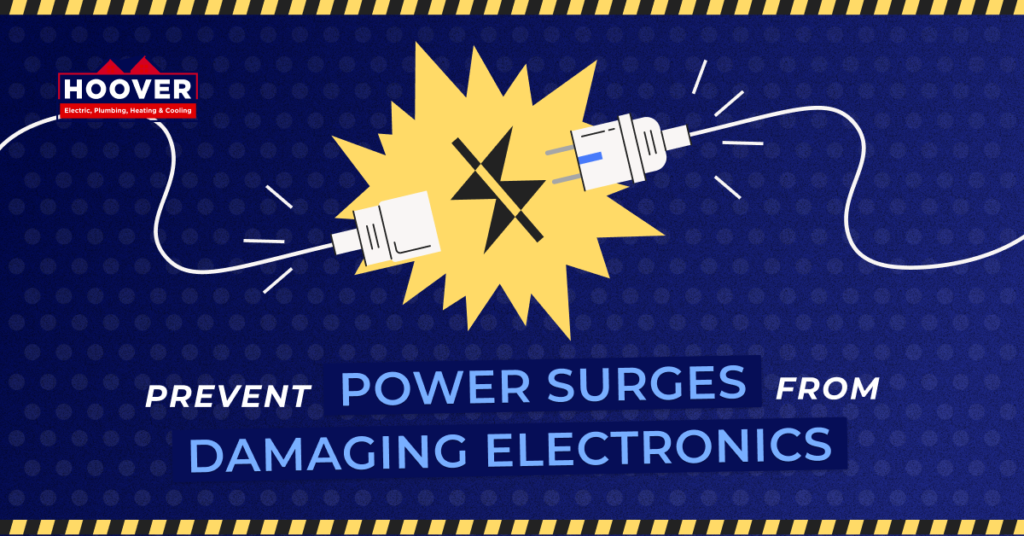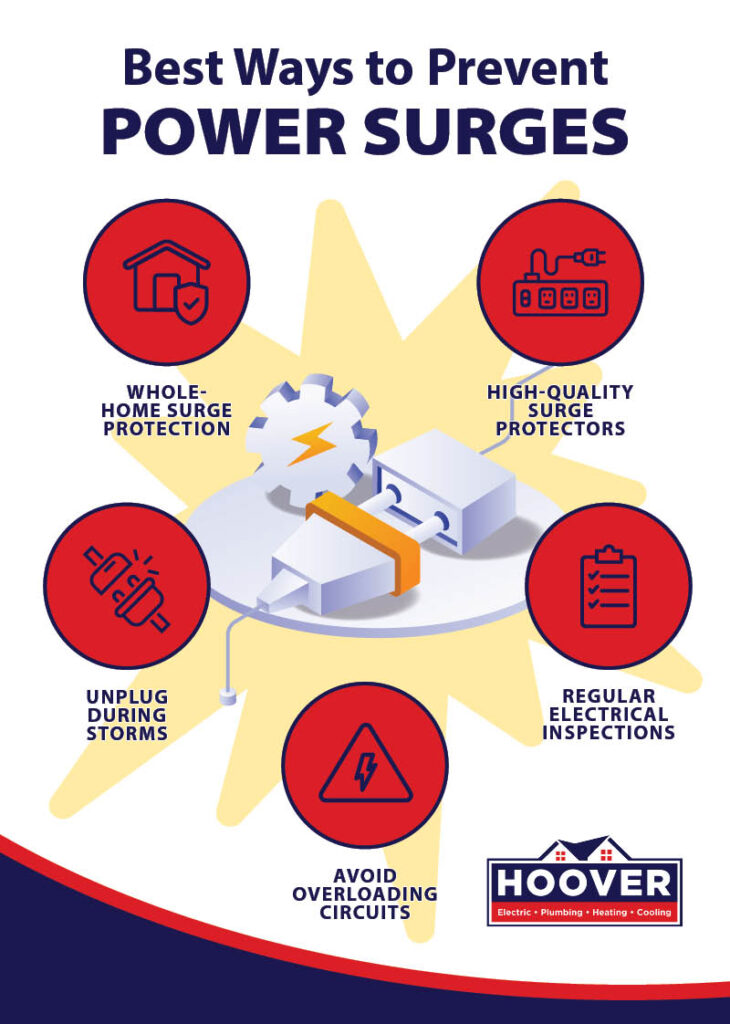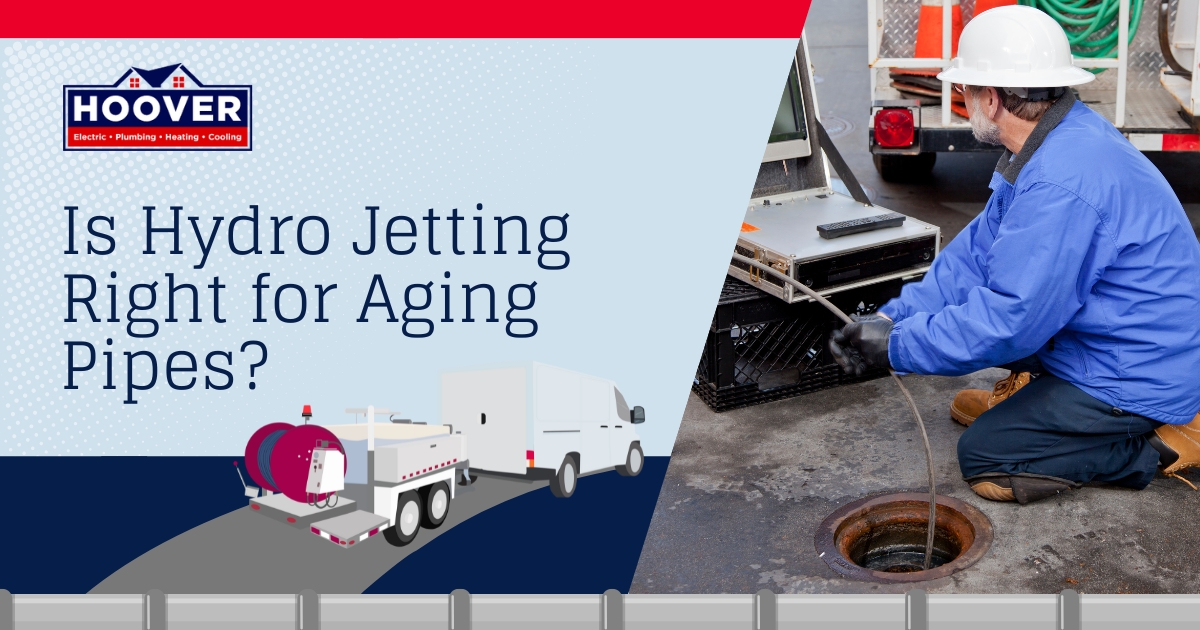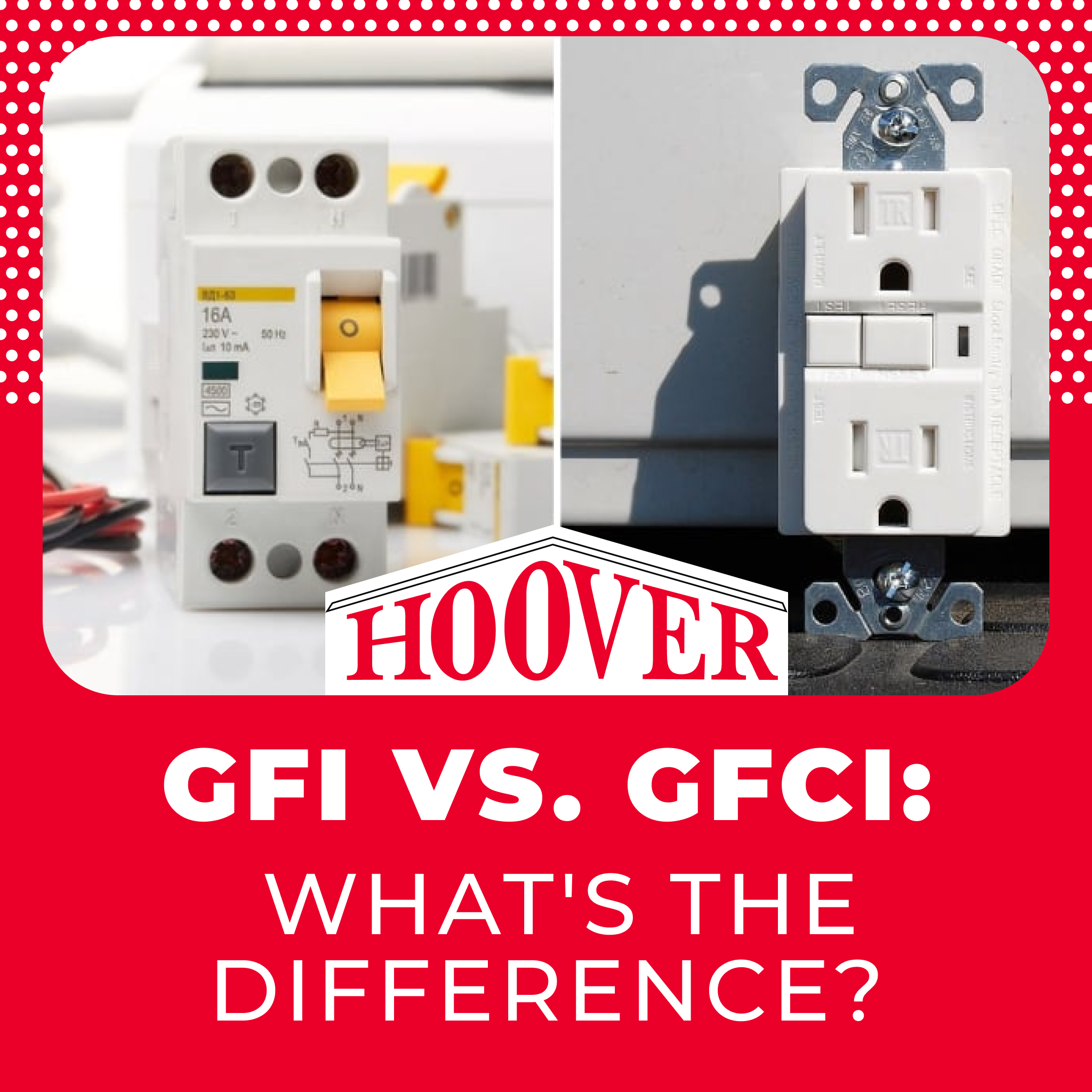
You probably have several surge protectors in your house — they are commonly installed during manufacture to protect electronics and appliances from power surges. But what are power surges? Read on to learn about power surge prevention and protecting your home electronics.
What Are Power Surges and Why Do They Happen?
Let’s explore power surges, their causes, and why you may want to consider whole-home surge protection.
Definition of a power surge
Power surges are short spikes in your home’s electrical current. They happen often but are usually harmless, lasting less than a second. However, power surges cause problems when multiple small instances lead to accumulated damage or when the surge is abnormally large, causing overloads or component failure.
Common causes of power surges
Power surges happen whenever electricity cuts off and then immediately reconnects. This may occur when there’s an electrical overload, faulty wiring, a lightning strike, or because of the sudden restoration of power after an outage or blackout. High-powered appliances also cause internal surges.
How Power Surges Damage Electronics
Your electronics, appliances, and other devices are in danger of damage whenever the power spikes.
Effects of power surges on electronics
A power surge can damage electronic devices’ circuit boards and internal components. It may also reduce the lifespan of appliances and cause data loss in computers and smart devices.
High-risk electronics and appliances
The most at-risk electronics in your home are TVs, gaming consoles, and computers. A surge can also damage your refrigerator, HVAC system, washing machine, and smart home devices, including your security system.
Signs of Power Surge Damage
Know the signs of power surge damage, so you know when to take action.
Visible damage
If you see burn marks on your outlets or plugs or if they feel warm to the touch, there was likely a surge. Other signs include flickering lights, non-functioning devices, strange odors, flashing lights on your digital clocks, or electronics turning off unexpectedly.
Performance issues
Some signs that you may need home electric repairs after a power surge are unusual buzzing or humming sounds from your appliances or devices failing to power on.
Best Ways To Prevent Power Surges From Damaging Your Electronics

If you’re wondering how to prevent power surges, the best method is being proactive and not overloading the system.
Install whole-home surge protection
At Hoover Electric, our licensed electricians install whole-home surge protectors to monitor the incoming voltage, sense electrical irregularities, and divert excess current into the ground. A whole-home surge protection device keeps your electronics safe long-term.
Use high-quality surge protectors
When buying surge protectors to protect electronics from power surges, choose one with adequate joule ratings for your home. In general, 1000 joules is enough protection for small power tools, but 2000 joules or higher is better for expensive gaming consoles.
Surge protectors lose effectiveness over time as their internal components degrade. Most have an LED light to indicate when they need replacing, while others have an audio alarm. If you don’t replace an outdated surge protector when it reaches its end of life, you risk damaging your electronics.
Unplug devices during storms
Unplug your devices during severe weather. Lightning can strike the electrical grid, causing voltage spikes that even the hardiest surge protector can’t handle. It’s not recommended to use anything plugged in during a thunderstorm, like your desktop computer or gaming headset. Turn off and unplug your devices before the storm hits to avoid accidental shocks.
Avoid overloading circuits
You can avoid overloaded circuits by plugging your devices directly into the wall outlet. If using a power strip or extension cord, make sure it’s rated for the appliance or device you plan to plug in. Never plug multiple power strips into the same outlet or a power strip into another strip or extension cord.
If your electrical system needs updating to handle modern demands, call Hoover Electric today to schedule an in-home walk-through consultation. An experienced electrician will examine your system and help you plan an upgrade that meets your needs.
Schedule regular electrical inspections
A regular electrical inspection detects faulty wiring and outdated components so your home’s electrical system is surge-ready. Don’t delay your inspection or repairs. Even if things seem to be working fine, internal damage may lead to serious future damage.
Why Professional Electricians Are Key To Power Surge Prevention
If a power surge happens, what should you do? Before resetting circuit breakers, reset, unplug, and repower all electronic devices. Then, assess your appliances, including your HVAC system, along with electronics and power outlets, looking for damage and determining functionality. This may require calling for help from a professional.
Expertise in whole-home surge protection
Our trusted technicians have years of experience installing surge protectors in homes, assessing electrical systems, and providing tailored solutions. We guarantee proper installation for optimal performance and are happy to provide tips on electrical safety.
Comprehensive electrical system inspections
If you haven’t had an electrical inspection before, or it’s been a few years, call Hoover Electric near Livonia, MI to schedule yours now. An electrician will identify and fix wiring issues that contribute to surges. They’ll check that your home is safe and your electrical system complies with local codes.
Long-term peace of mind
We’re the leading local experts. Once we inspect and repair your electrical system, you can relax knowing your electronics and appliances are protected from future surges.
How To Get Started With Power Surge Protection
At Hoover, we make it easy for our customers to schedule electrical inspections and upgrade their systems. We care about the community around us and work hard so you and your home are safe in the next big electrical storm.
Schedule an electrical inspection
Home inspections are crucial for preventing power surges. We’ll check for common sources of power surges, faulty connections, frays, or shorts, and then give you a full report with our recommended solutions. To schedule an appointment, use our easy online scheduling tool.
Upgrade your home with surge protection
When you upgrade your electrical system with modern surge protection, you’ll enjoy improved electrical safety with a reduced risk of property damage or shock. A total system upgrade also improves your home’s energy efficiency and increases your home value.
At Hoover, we offer flexible financing options for surge protection services, so you can make your home safer today and pay later in small, manageable installments.
Protect Your Home With Expert Electric Repair Services
Now that you’ve learned about electrical surge causes and prevention, give us a call and schedule an inspection with a local Hoover electrician. We’ve worked with customers in Southeast Michigan since 1980, offering courteous, professional service and competitive pricing while maintaining guaranteed satisfaction and great customer service (including free estimates on some services).
If you need top-quality electrical, plumbing, heating, or cooling services in Clinton Township or Troy, Michigan, contact Hoover through our website or call (586) 232-9204 today.
Frequently Asked Questions
Are power surges common, and should I be worried?
Yes, they’re very common, although most are small and harmless. Take precautions like using power strips and installing home surge protection.
Can power surges happen even when the weather is clear?
Yes. Power surges can be caused by many events, such as using too many high-powered devices at once or otherwise overloading a circuit, utility grid issues, or even nearby construction work.
How do power surges affect electronics and appliances?
A sudden excess of power damages sensitive circuit components, which may cause malfunction or device failure. It can also create a lot of heat and, in some cases, start a fire without adequate protection.


